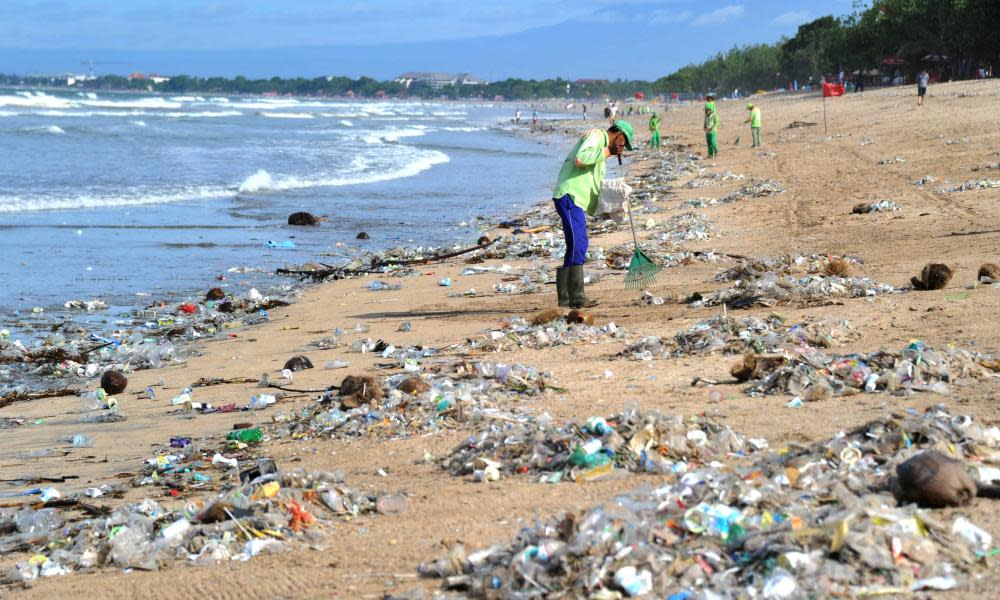The Upside: Homes for the homeless, equal pay - and a clean up in paradise

Some of the most significant challenges that we are interested in exploring in this series are community breakdown, gender discrimination and protecting the environment. This week, Guardian journalists ventured around the world to report on initiatives tackling all three.
Libby Brooks reported from Scotland on “radical” plans to offer permanent housing to even the most entrenched rough sleepers with mental health or addiction problems. Social Bite’s project “works on the assumption that people make most progress when based in a stable home rather than a hostel or shared temporary accommodation,” Brooks wrote.
Similar schemes in the US and Finland have had success, and the British government has agreed to fund further pilots across England. The money for the Scottish project – which will house at least 600 rough sleepers – was raised by a mass public sleep-out in freezing temperatures last December.
A few hundred miles further north, Iceland has different preoccupations. Last month it became the first country in the world to legally enforce equal pay for men and women. Even in the world’s most gender-equal country, Icelandic women still earn, on average, between 14% and 20% less than men. Enforcement will be complicated, Jon Henley writes, requiring significant time and money, and some have complained about the top-down approach. We’ll be keeping a keen eye on how it goes.
Sticking with the theme of innovative islands, we reported from the Seychelles on a groundbreaking “debt for dolphins” plan to write off national debt in exchange for creating two huge marine parks. Our seas are in urgent need of rescue: a survey this week found more than 50% of the ocean vastness is now commercially fished.
Don’t forget, we want you to join us in our Upside project. If you know of a community anywhere in the world that is working to fix a local problem, tell us about it using this secure form. And if there is a story, innovation or everyday hero you think we should report on, write to us at theupside@theguardian.com.
What we liked This BBC radio documentary on hydroponics – growing plants in water without any soil. “New twists on the old technique” could help shape the future of food. Also Steven Pinker’s Guardian article arguing the importance of work like the Upside. “The consequences of negative news are themselves negative,” he wrote.
What we heard
I’d like the Upside to cover debt-for-nature swaps and other policies which aim at making forests pay for local people. Many of the world’s most precious forests lie in ‘poor’ countries, where they are vulnerable to population pressure and illegal logging. We have a collective interest in their protection.
– Chris Armstrong, in response to our request for input here.
Where was the upside? In Bali, where thousands of people will gather this weekend to clean beaches ravaged by tourism and a daily tide of plastic debris and other garbage.

 Yahoo News
Yahoo News 
